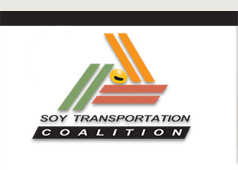 |
 |
|
| eNews • March 2014 | ||
| Promoting a Cost-Effective, Reliable and Competitive Transportation System |
||
 Panama Canal Locks Delayed Again Under New Contractor Pact
Panama Canal Locks Delayed Again Under New Contractor Pact
The deadline for completing the $5.25 billion Panama Canal’s expansion project has been postponed by another three months, to early 2016, under a tentative refinancing agreement between the Panama Canal Authority and the engineering consortium that is building the new locks.
The verbal refinancing agreement, which contracting consortium Grupo Unidos por el Canal is supposed to sign on March 5, calls for the provision of an additional $600 million to complete the locks project. It does not cover any of the $1.6 billion in cost overruns that GUPC is claiming and the canal authority is saying must go through the contractual process for settling disputes. “They are not getting any more money from me,” Panama Canal Administrator Jorge Quijano said today. “I want to make that very clear on our part.”
As a result of this delay and a slowdown in work on the project since last November, the expansion will not be completed until sometime in the first quarter of 2016, Quijano said in a teleconference with reporters on Feb. 28.
He estimated that the new delay, which comes on top of previous delays of 13 months, will cost the Panama Canal Authority about $300 million in lost toll revenues. The original deadline for completing the project was October of this year, but problems with the formula for making the concrete for the new locks and unspecified electromechanical problems had pushed the deadline back until the fourth quarter of 2015.
GUPC suspended work on the new locks for about two weeks this month in an attempt to force the canal authority to pay for the cost overruns, but resumed work on Feb. 21 after intense negotiations. “I want to stress that in these negotiations we have managed to ensure that GUPC understands that any claims for cost overruns or whatever they feel are attributable to the Panama Canal will have to go through the process that is laid out on the contract,” Quijano said.
Under the verbal refinancing agreement, both the canal authority and GUPC will advance $100 million in funds to complete the project. Quijano said the canal authority would recover those funds when the project is completed.
In addition, Zurich Insurance North America, which holds a performance bond of $400 million on the project, will advance those funds to the project to be put in escrow for payments to suppliers and subcontractors that will be audited by the canal authority. “With those payments, we should be able to jumpstart the work,” Quijano said.
The agreement calls for a timetable for delivery of the final 12 of the 16 lock gates that Cimolai is building in Italy. Four of the lock gates were delivered last August aboard a semi-submersible vessel operated by the heavy-lift carrier Sarens. The vessel had been reconfigured to carry the heavy gates, which each weigh 3,300 tons. That vessel is currently employed in Dubai but will become available to transport the remaining gates from the Port of Trieste to Panama by December, Quijano said.
As contractor for the locks, GUPC is responsible for paying Cimolai for the gates. Quijano said GUPC still owes Cimolai some money for them. Some of the new funds that are being put into the project will be used to pay Cimolai.
GUPC consists of Sacyr Vallehermoso of Spain, Impregilo of Italy, Jan de Nul Group of Belgium and Constructora Urbana of Panama. Sacyr, the lead engineering firm in the consortium, is in financial straits. “They said the project has run out of money and that they needed this influx of money so they could continue the work.” He said Zurich is behind the arrangement to raise the $400 million to complete the project.
Quijano declined to comment on whether Sacyr, which has been suffering losses, had received financial support from the Spanish government. He said that if the canal authority had not been able to negotiate a new timetable and the deliverables set out for GUPC in the verbal agreement, it would have had “to terminate GUPC and take over the job.”
The agreement also calls for a moratorium on the repayment of $784 million that GUPC owes the canal authority until 2015. “If they meet the milestones in the agreement for completion of the locks by December of 2015, that could be extended until 2018,” Quijano said. He said he hoped that the project can be completed at or below the original $5.235 billion cost target.
The intense negotiations that led to this agreement have created some bad blood between the canal authority and its lead contracting group. “The relationship was strained quite a bit through the last couple of months,” the canal administrator said. “We will have to rebuild that relationship.”
Source: Journal of Commerce
Soy Transportation Coalition |
|
